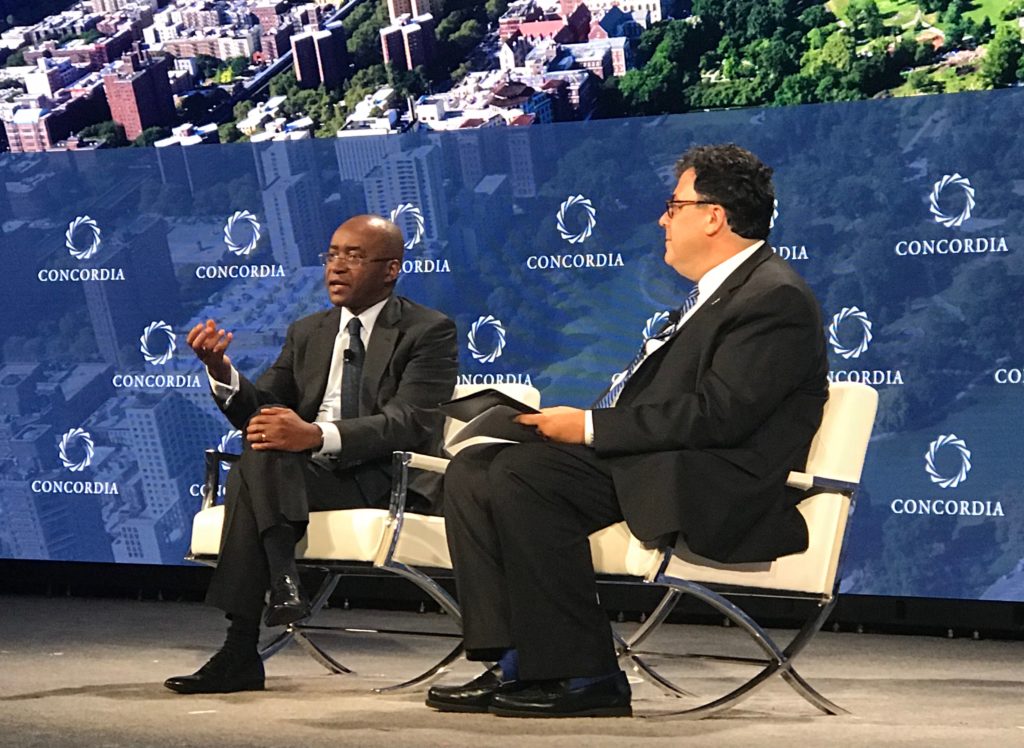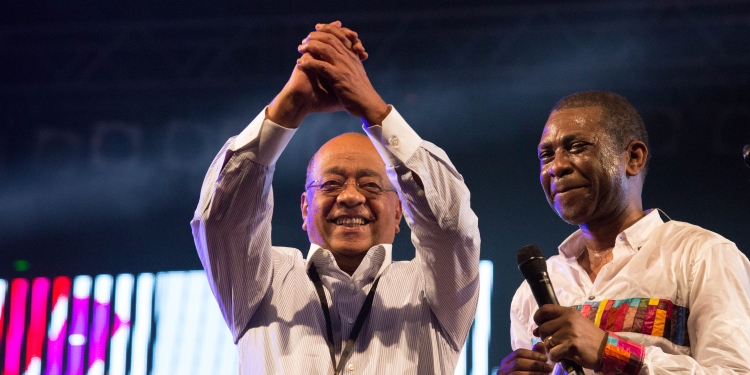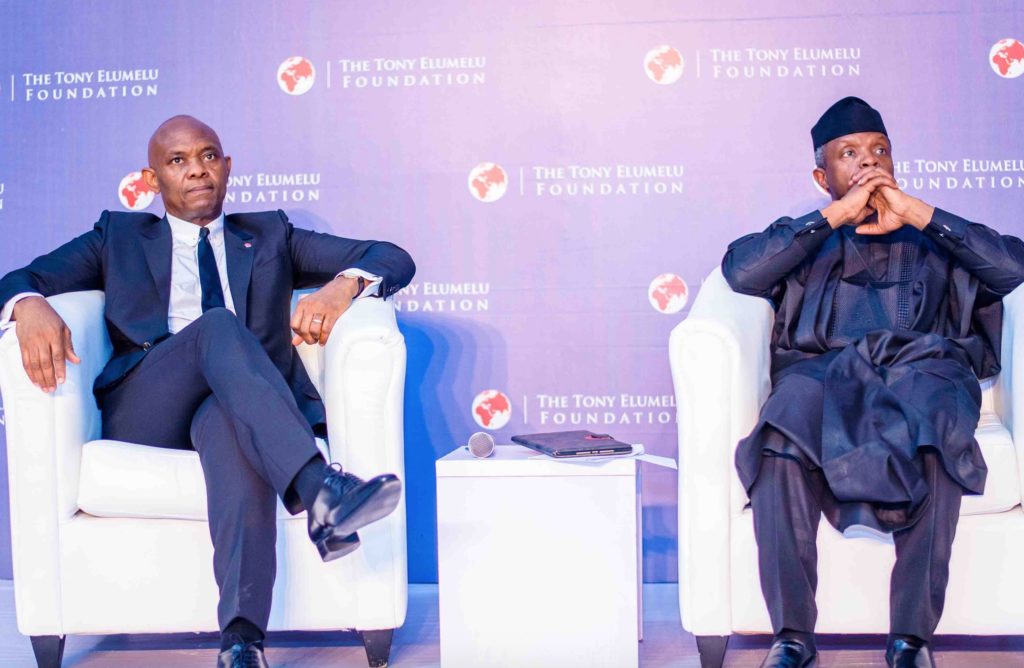
The Continent’s Wealthiest People are Shifting the Business Paradigm to Help Close Inequality, Make Big Impact in their Society
Kemi Osukoya
THE AFRICA BAZAAR MAGAZINE
April 2019
FOR BUSINESS PEOPLE LIKE ZIMBABWEAN BUSINESSMAN and philanthropist Strive Masiyiwa, Africa has brought great fortunes in the past decades. But as their riches have proliferate, so also is the wealth inequality between the rich and the poor on the continent. Now, some of the continent’s wealthiest people are seeking ways to close that huge prosperity gap.
Masiyiwa and a group of other African wealthy families, including Nigerian Tony Elumelu, and Sudanese-British Mo Ibrahim are making sure the younger generation of African entrepreneurs emerging on the African continent are provided with a financial leg up and other resources they need so they too can realize their business goals.
In February, Masiyiwa, 58, who established Econet Wireless in 1994, which later expanded into Econet Group, a pan-African media, technology and telecommunication company, and owns more than 50 percent of privately held company Liquid Telecom, which provides fiber optic and satellite services to telecom firms in Africa, announced that he and his wife, Tsitsi Masiyiwa, have set up a $100 million fund to boost access to capital for small-medium-sized enterprises within Africa.
The funds, which will be given to businesses as non-collateral loans that range from $1000 to $10,000 with a 5 percent maximum interest rate, will help support women-owned businesses and women entrepreneurs. The main target audience are young entrepreneurs, excluding traditional businesses like stores and grinding mills. In announcing the funds, Masiyiwa states he established the fund “to help a new generation of businesses fulfill their dream and I want to fulfill my dream of ReImagineRural. The hope is to raise the future generation of entrepreneurs who will make a huge impact in their community and the entire continent.” The funds stipulates that all entrepreneurs pre-approved for financing must undergo training before receiving the loans and there should be no political lobbying for support to obtain financing. The repayments from the loans will go into a revolving account.
Worldwide, the divide between the rich and the poor, the private sector and the public sector in the society have grown exponentially in the past decades. According to Inside Philanthropy, more than 170 billionaires worldwide have now signed on to the Giving Pledge. To help close the huge gap in the great divide in wealth in Africa, some business leaders turned philanthropists are now using, in many ways transferring the business principles that got them into leadership positions to help tackle some of the continent’s most challenging problems.

“If you want to be successful in life, identify a great human need and reach out to solve it and the rest will take care of itself and that has become a model within both our foundation and corporate world. I didn’t enter philanthropy because I had an epiphany that says I have made a lot of money, now let me go into philanthropy,” says Masiyiwa during an interview last September at an event in New York City. “As I have often said, when I ran my construction company back in the late 1980s to early 1990s, my workers have become inflicted with HIV/AIDS and they were dying, I was loosing 10 workers a week and they were young men and women and I thought what can I do for these people and so I came up with this idea with my wife and say maybe we should take their kids in and send them to school. That was our intention. We couldn’t institutionalize the kids but we found their relatives that can take care of them and we pay for the kids’ school fees, uniforms and upkeeps. Twenty years later, 250,000 children have gone through that program through our foundation.”
Masiyiwa and his wife founded the Higherlife Foundation to support children who are orphaned by AIDS disease. The foundation now serves orphaned and poor children in Burundi, Lesotho, South Africa and Zimbabwe.
Masiyiwa, who served for 15 years as a member of the Board of Trustees of the Rockefeller Foundation, credits his time on the board for shaping his view on philanthropy. “I learned about philanthropy in a deeper sense. I learn to not just respond to the issues that emerged but to identify solutions and look to the deeper causes of challenges in the society and be a little bit more upfront in the search for solutions,” says Masiyiwa.
He underscores that philanthropic acts differ from corporate social responsibility. “The greatest philanthropists, for us business leaders, if you see philanthropy in terms of putting money into something, you have missed it,” says Masiyiwa. “The greatest philanthropy actually comes from the skills that put you were you are, were you are leading. We are a leading generation, plus our businesses are not linked to political parties or goals.”

While the concepts and acts of altruism are deeply embedded in the African cultures and values, Masiyiwa and others like him represent a new wave of Africa’s wealthy families who see philanthropy not just as an essential way to give back, but also a way to maintain their family legacies. This wave of businessmen turned philanthropists within Africa, educated abroad and globally engaged, are increasingly having significant influence in spurring good governance, development, improving literacy, cultural education, and the environment.
They are taking inspirations from their counterparts in the West, like the Rockefeller family which started the Rockefeller Foundation, and Bill and Melinda Gates-who founded the Bill & Melinda Gates Foundation, to aid the African continent’s overall development by convening people who usually do not work together-the government, private sector and civil society-and get them involved in the agenda of countries well beyond parties lines, to work together on a common agenda and issues that matters most.
For example, Mo Ibrahim, 63, who came from a humble beginning and made his fortune when he launched Celtel, established the Mo Ibrahim Foundation in 2005, which produces Mo Ibrahim Index-an annual index report that tracks governance and leaderships outputs across African governments as a way to encourage good governance in governments on the continent. He later launched the Mo Ibrahim Prize for Achievement in African Leadership, which awards monetary prizes to former African presidents who greatly improved their countries during their term in office. The award is meant to influence African governments and politics by encouraging transparency, good governance as well as to help stop illicit transfer of funds from national reserves by governments to offshore accounts.

The Tony Elumelu Foundation, founded by Elumelu, 56, Nigerian billionaire and Chairman of Heirs Holdings and United Bank for Africa, announced a TEEP fund in 2015 for the Tony Elumelu Entrepreneurship Program, which is currently in its fifth operation. One way Mr. Elumelu is boosting entrepreneurship on the continent is by training career professionals to become entrepreneurs as well as providing business training and financial support to emerging entrepreneurs.
Ashish J. Thakkar, 37, one of Africa’s young millionaires, established Mara Foundation in 2009 to help empower and support emerging entrepreneurs on the continent through mentorship.
Experts, noting the African Continental Free Trade Agreement, say though these billionaire philanthropists each work individually on their projects, when put together as a group, their collective efforts could prove to be the winning tickets that the continent need to accelerate good governance and spur enough socioeconomic progress across the continent that in turn will advance most of the continent’s nations into becoming advanced economies.



